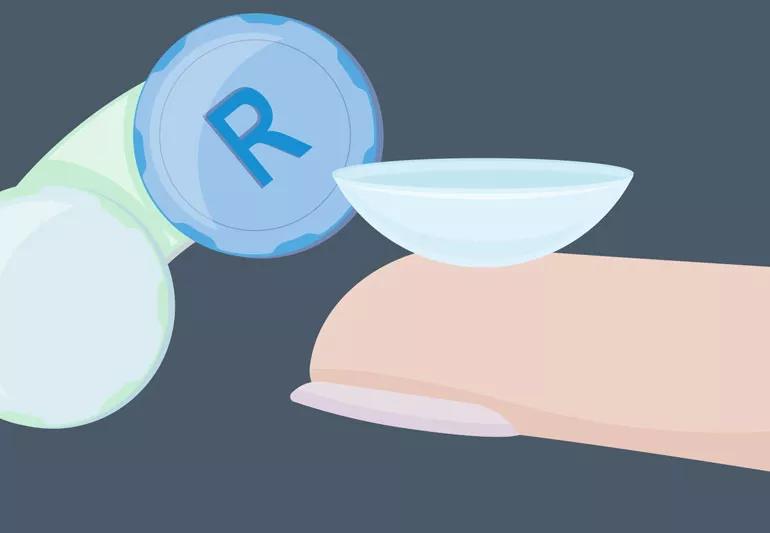The short answer from an optometrist

Image content: This image is available to view online.
View image online (https://assets.clevelandclinic.org/transform/04c04d1a-074e-43e5-87f9-63ab3dd2f528/contactDiscard-875632406-770x553_jpg)
contact on finger illustration
Q: Exactly how often should I be changing my contact lenses?
Advertisement
Cleveland Clinic is a non-profit academic medical center. Advertising on our site helps support our mission. We do not endorse non-Cleveland Clinic products or services. Policy
A: Ignoring the replacement schedule of your contact lenses can cause serious problems. From minor irritation to permanent damage, it’s important to know the lifespan of your lenses and change them accordingly.
Most contacts in the market today are soft lenses, which range in duration for length of wear:
Advertisement
Anytime you over wear or sleep in your contact lenses, you put your eyes at risk. These risks can be minor such as discomfort or red eye, or they can cause more serious concerns like corneal hypoxia that can lead to a corneal ulcer. This is a condition in which your contact lenses starve your eye of oxygen which can lead to a corneal infection and possible blindness.
Even if you don’t wear your contacts every day, you still need to follow the replacement schedule. As soon as you take the lenses out of the sterile package, they start to degrade ― no matter how many times you do or don’t wear them.
The bottom line? When it comes to contact lenses, know your replacement schedule for your type of lenses and be adamant about following it. If you aren’t wearing dailies, use fresh contact solution every single night and replace your contact case every three months.
– Optometrist, Wes Immler, OD
Advertisement

Sign up for our Health Essentials emails for expert guidance on nutrition, fitness, sleep, skin care and more.
Learn more about our editorial process.
Advertisement
Irritated eyes are just the beginning if you leave your contacts in too long
Contact lenses are available for virtually every prescription and lifestyle
Even contacts made for overnight use can hurt your eyes
The short answer from an ophthalmologist
Redness, pain and blurred vision? See your doctor now
For starters, don’t sleep in contact lenses
Most recommended precautions center around minimizing bruising or swelling
Type 2 diabetes isn’t inevitable with these dietary changes
Applying a hot or cold compress can help with pain
Pump up your iron intake with foods like tuna, tofu and turkey